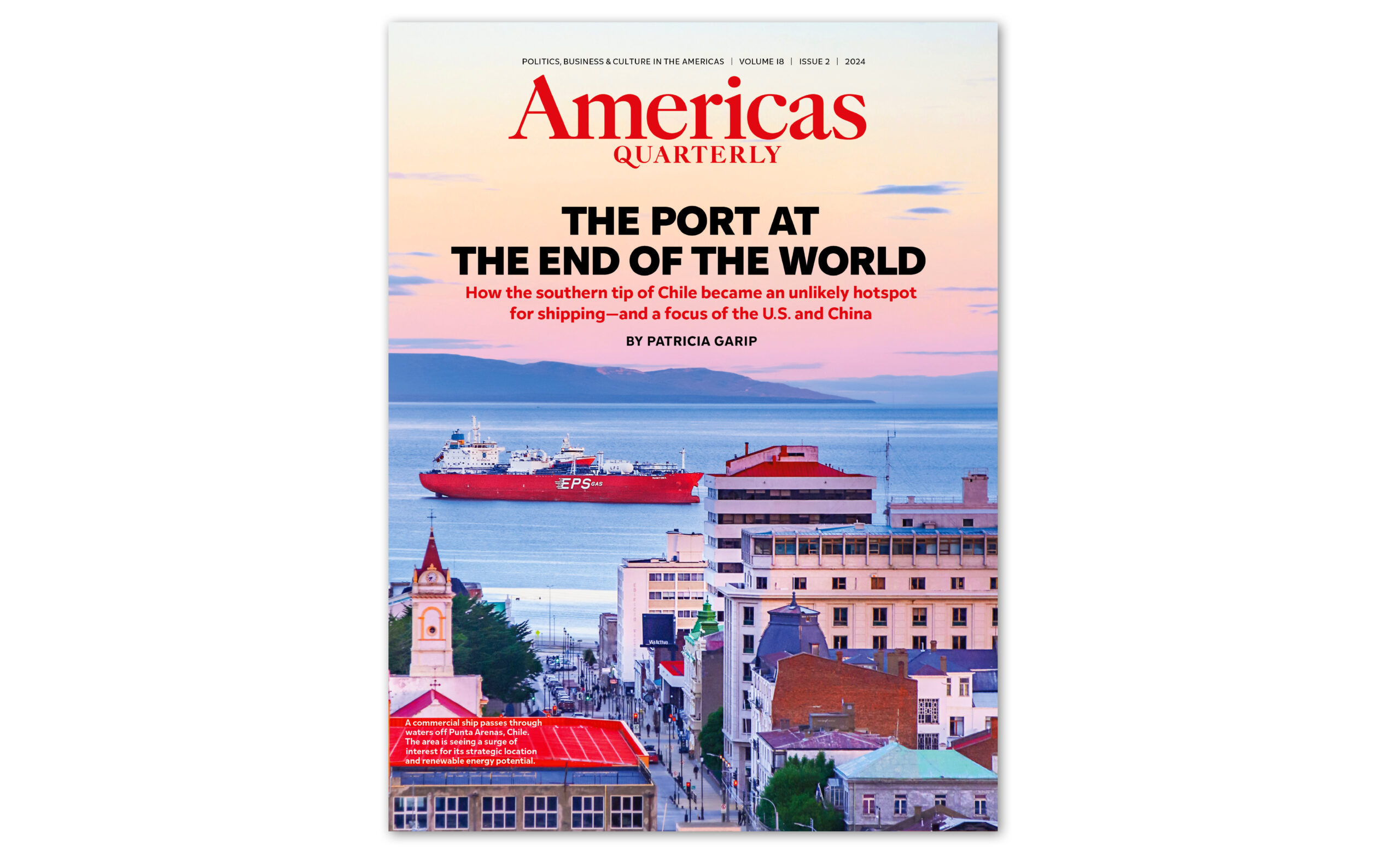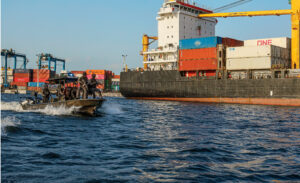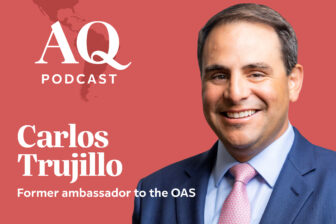This article is adapted from AQ’s special report on Latin America’s ports
They’re not always thought of as political hotspots. But in fact, ports are at the intersection of several crucial issues in Latin America and the Caribbean today.
The eruption of violence in Ecuador earlier this year was largely about drug gangs battling for control of its biggest port, Guayaquil. Smuggling in Chile’s port of San Antonio is driving a broad crime wave, weighing on President Gabriel Boric’s approval rating. The Chinese are building a $3.5 billion port near Lima, a potential bonanza for exporters as far away as Brazil—and a source of geopolitical tension with the United States. If countries from Mexico to Colombia are to fully seize today’s nearshoring opportunities, port upgrades must be part of the equation, with as much as $55 billion in investment needed by 2040.
This issue’s cover story shows how Punta Arenas, at the very tip of South America, is surprisingly at the heart of several key policy matters. The port lost its importance more than a century ago, with the opening of the Panama Canal. But today, a drought impacting the canal, as well as new technologies like green hydrogen and the potential economic exploitation of Antarctica due to climate change, are putting Punta Arenas back in the spotlight. Officials from China, as well as a senior U.S. military commander, have both visited the windswept region of late.
Outsiders may focus on the risks and rivalries, but Punta Arenas highlights that this is about opportunities, too. Boric’s government seems to understand the stakes, announcing in November a $400 million, five-year investment to upgrade ports and other infrastructure in the Magallanes region, where he was born and raised. “If we want to move toward more just and inclusive development, we need more and better ports,” he said. Other leaders would do well to heed his words.









